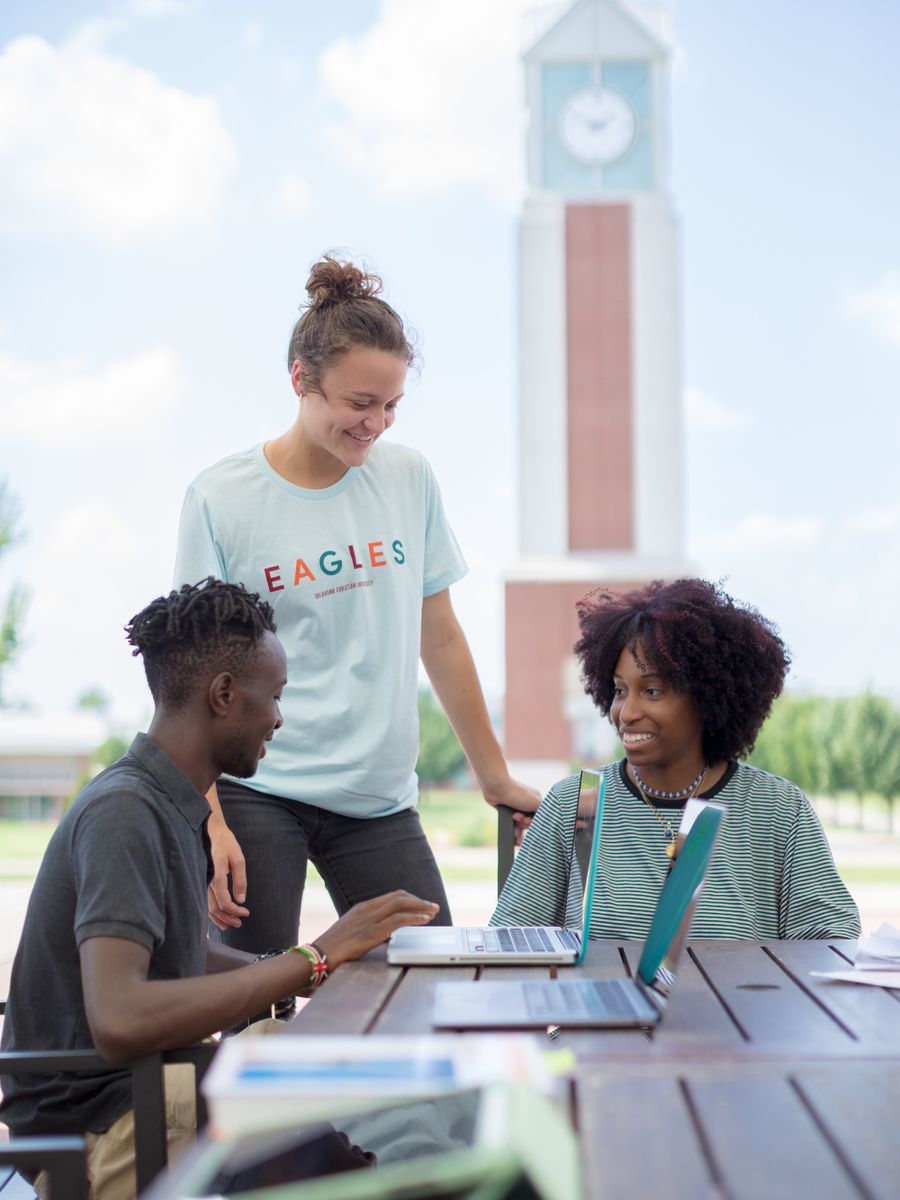Academic Accommodations
Academic accommodations are legally-mandated modifications, adjustments, auxiliary aids, and/or services that give a student with a disability an equal opportunity to benefit from the educational process. It is useful to think of accommodations as adjustments to how things are normally done.
Academic accommodations may include:
- Changes to a classroom environment or task that permit a student with a disability to participate in the educational process
- Modifications to policies, practices, or procedures
- Provision of accessible instructional materials and effective communication services
- Other adaptations or modifications that enable a student to enjoy the benefits and privileges of the university’s programs, services, and activities.
Students who may need academic accommodation based on the impact of a disability must register with the Director of Accessibility Resources in Student Success and initiate their requests. Because accommodations are not retroactive, students should contact Student Success as soon as possible in order to ensure timely notice and coordination. In addition, because 504s are only valid for one semester, students must renew each semester by contacting the Accessibility Resource Office to schedule a renewal meeting.
Similarly, it is the student's responsibility to notify the Student Success Office as early as possible in the event of any problems or unexpected barriers experienced in the obtaining of academic accommodations and services.
Students requesting accommodations may be asked to provide documentation on letterhead from a licensed professional:
- Your name
- Your diagnosis
- Information about the necessary classroom accommodations you will need in order to successfully complete the semester. There must be a nexus between the disability and the accommodations requested.
- Name and credentials (license #, etc.) of the diagnostic clinician.
Emotional Support Animals (ESA) Requests
In addition to “Service Animals” as discussed in the University Service Animal Policy, Oklahoma Christian University (“OC”) recognizes the importance of Assistance Animals as defined below, and in the Fair Housing Act. Assistance Animals provide physical and/or emotional support to individuals with disabilities. OC is also committed to allowing Assistance Animals that are necessary to provide individuals with disabilities an equal opportunity to use and enjoy campus housing. This Assistance Animal Policy explains the specific requirements applicable to an individual’s use of an Assistance Animal in campus housing. OC reserves the right to amend this policy at any time, as circumstances may require. This policy applies solely to Assistance Animals that may be necessary in campus housing, and does not apply to “Service Animals” as defined by the ADA.
Although it is the policy of OC that individuals are generally prohibited from having animals of any type in campus housing, OC will consider a request by an individual with a disability for reasonable accommodation from this prohibition to allow an Assistance Animal in student housing, that is necessary and reasonable because of a disability.
The ESA approval should be obtained at least 30 days before moving in. No Assistance Animal may be kept in campus housing at any time prior to the individual receiving approval as a reasonable accommodation pursuant to this policy. Failure to comply with policy could result in an assessment of a daily fee.
Other Resources
- Facilities and Services Available to Students with Disabilities
- Student Disability Handbook
- The Americans with Disabilities Act (ADA)
- The Association on Higher Education and Disability
Meet the Director of Accessibility Resources!
Michael Ferguson
Assistant Director of Student Success & Accessibility Resources
Phone: 405.425.5922
Email: michael.ferguson@oc.edu

